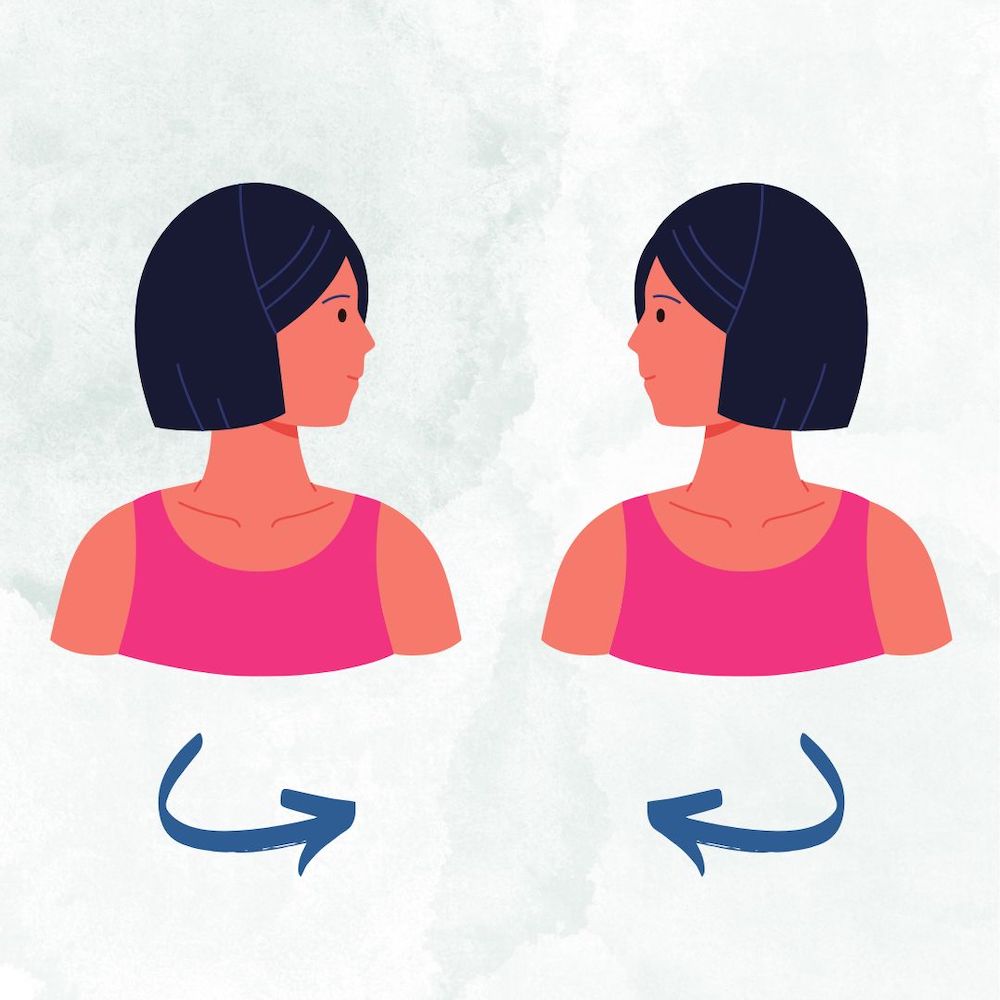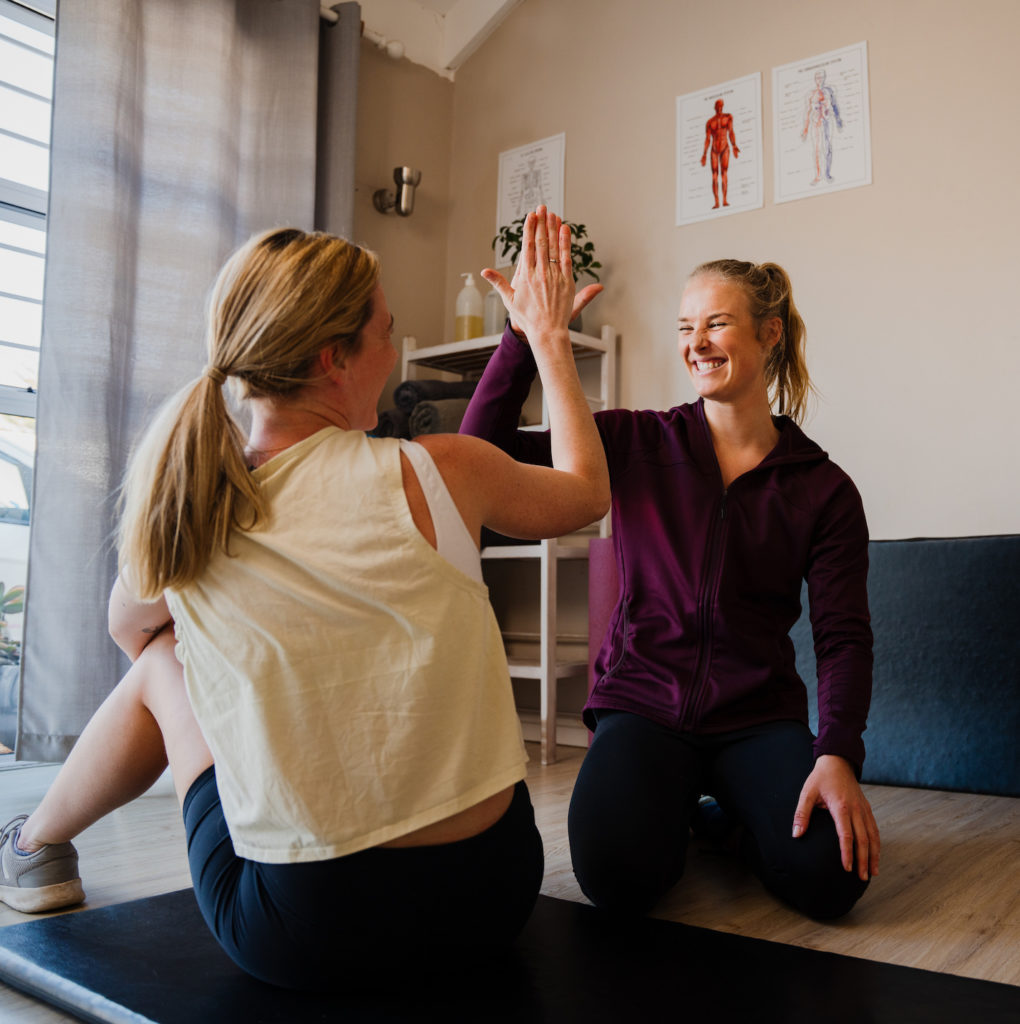Vestibular Rehab Therapy
Beat dizziness and avoid a fall.
We specialize in Vestibular Rehab Therapy to help you regain balance. Book a discovery call with a physical therapist today. We’ll discuss your balance and determine your options. No referral needed and no strings attached.
“My Synergy therapist gave me such terrific balance and strength exercises that she had compiled herself, I am so very much improved. My gait is near-perfect now! I love Synergy and would recommend this wonderful place to anyone!” – H.S.
Gentle, Easy Treatments
Vestibular Rehab Therapy utilizes gentle exercises incorporating slow movement, head turning, or eye exercises. At first, you’ll probably notice that vestibular rehabilitation exercises slightly increase your symptoms. Generally, this is a good thing – it means that you’re doing the exercises correctly and stimulating your vestibular system appropriately. With consistent work, your symptoms will decrease until they are more manageable and, in many cases, entirely resolved.


No medication, invasive procedures, or endless programs.
Quickly Return to Feeling Normal
The length of a vestibular rehab therapy program depends on the patient’s diagnosis and severity of symptoms. Our Vestibular Rehab Therapy specialists typically see patients once weekly or less for 1-3 months. Often, treatment is quickly effective. The effectiveness of the exercise program depends not only on the exercises chosen by the physical therapist but also on the patient’s adherence to the program.
Tailored to You
At Synergy Physical Therapy in Spokane Valley, every patient’s vestibular rehabilitation exercise program differs. This is not only because there are different vestibular impairments, but each type affects everyone differently. Each case is unique. If you’ve received generic exercise handouts or been put through a general vestibular program at other clinics without success, come to Synergy Healthcare. We’ll test to understand your specific impairments. Then we’ll introduce proper alterations to your vestibular exercise program at the correct time in your recovery.


I was diagnosed with Meniere’s disease and I was having very severe dizzy spells, nausea, and vomiting. I was pretty much housebound. I couldn’t drive, I couldn’t ride my horse. I didn’t know when the symptoms would come on and be so severe that I couldn’t even walk down the hall without holding on to the walls.
I have been coming to Synergy for almost a year. When I started coming, it seemed like the symptoms were almost immediately relieved. Not completely, at first, but I definitely felt relieved. As I kept coming, twice a week, the symptoms were less and less severe until I could drive again. I could go out with people and ride my horse again safely. Because it’s real and it helps. Literally, it changed my life. I was non-functioning, I was very depressed, and now I am a new person. Synergy made my world normal again!
Pam A.
Let’s Talk
Book a discovery call with a physical therapist today. We’ll discuss your balance and determine your options. No referral needed and no strings attached.
FAQs
Vestibular Rehab Therapy Explained in a Nutshell
Vestibular rehabilitation therapy (VRT) is a form of physical therapy that focuses on balance. It’s a specialized skillset that is prescribed to treat and improve the symptoms caused by vestibular disorders.
After a challenge with the vestibular system occurs, the central nervous system can compensate for the reduced function of the inner ears. Your central brain copes with the imbalanced signals coming from the vestibular system by learning to rely more heavily on alternative signals coming from other systems in the body. The brain’s shift in reliance is achieved through various exercises (examples below). When your brain (or central nervous system) successfully compensates, your symptoms will be alleviated, and you can return to normal life.
Wait, what is my Vestibular System?
Your vestibular system is comprised of a three parts 1) your two inner ear organs 2) the vestibular centers of your midbrain and cerebellum and 3) your peripheral vestibular nerves. Taken together, these organs and nerves help you detect head position and motion.
The vestibular organs in your inner ears act like sensors that measure head rotation, forward/back and up/down motions and head tilt. The vestibular nerve connects your inner ear organ to the midbrain and cerebellum towards the posterior of your brain. These vestibular nerves transmits the motion information from the inner ears to your brain for processing.
Your brain processes information from your inner ear organs but also receives “backup” information from other senses such as your vision, the joints, muscles and tendons throughout your body. Taking this information together, your brain then sends outs nerve impulses to the muscles in your eyes, trunk and limbs so that you react appropriately to each situation.
How Does Vestibular Rehab Therapy Work?
Vestibular rehabilitation exercises allow for the central brain to compensate for your your vestibular system’s impairments. This central brain compensation can typically be divided into three categories
Habituation
This process allows you to gradually desensitize yourself to vestibular movement and stimulation if you are repeatedly exposed to it.
Adaptation
This is a process where nerve impulses in the brain are able to shift or “adapt” to the incorrect signals from the damaged vestibular system. This gradual shift allows your brain to recalibrate itself.
Substitution
This recovery principle uses other body functions or strategies to replace the missing vestibular function.
Vestibular Rehab Therapy Conditions
Patients typically referred for Vestibular Rehabilitation have been diagnosed with a vestibular condition including:
- Benign Paroxysmal Positional Vertigo (BPPV)
- Vestibular Neuritis/Labyrinthitis
- Vestibular Migraine
- Persistent Postural Perceptual Dizziness (PPPD)
- Post Concussion Syndrome (PCS)
- Meniere’s Disease
- Neurological conditions (i.e. stroke, traumatic brain injury)
- Vestibular deconditioning from aging or inactivity
- and many other vestibular conditions….
Does Vestibular Rehabilitation Therapy Work?
YES! Years of evidence supports the effectiveness of Vestibular Rehab Therapy in conditions like chronic dizziness, vestibular migraine and tension type headaches, concussion, fall risk and many others. The great news is that your adherence to vestibular rehab therapy exercises at home need not be long or arduous in order to see benefits. As one study states “As long as exercises are performed several times every day, even brief periods of exercise are sufficient to facilitate vestibular recovery.”
Vestibular Rehabilitation Therapy Near Me
Synergy Physical Therapy in Spokane Valley offers the most experienced physical therapy team to help you overcome dizziness. Our team includes an experienced vestibular rehabilitation specialist, Mary Carpenter, PT.
If you have questions about whether our offerings are appropriate for you, we offer a no-obligation discovery call with an expert member of our team. They can speak with you to honestly assess your challenges and explore your treatment options.
Beat Dizziness. Get Back to Normal.
Connect with our team to see if Vestibular Rehab Therapy can help your symptoms.
“I wish I could give Synergy more than 5 stars! Synergy is the only place that I trust for physical therapy and occupational therapy.”
– Kate, Google Review

While many people seek physical therapists for balance issues, they’re often given generic instructions or entered into a generalized program. They may begin to feel slightly better, but their symptoms don’t completely disappear. And they leave physical therapy still unable to feel safe returning to their daily activities.
That’s why I’m proud to offer Synergy Physical Therapy’s Specialized Vestibular Rehab Program – with Mary Carpenter, PT. Mary has decades of experience working with complex cases. She’ll craft a treatment plan specific to you and your challenges to help you return to normal and feel great. If you’re having balance issues, I hope you’ll give it a try.
– Shauna Burchett, Owner